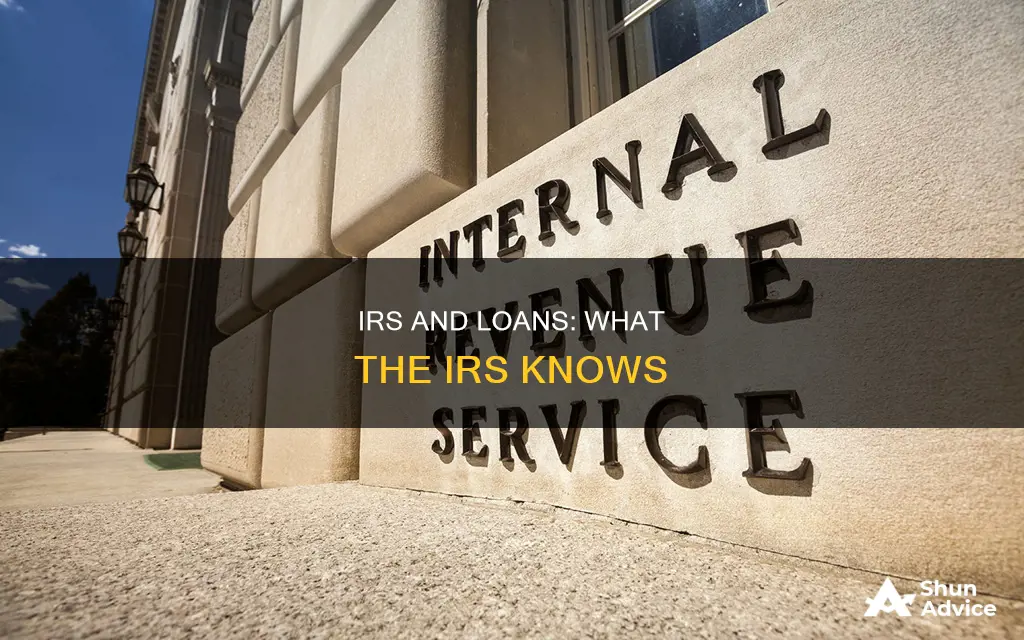
The IRS has access to a lot of information on taxpayers, and they probably already know about your financial accounts. Banks are required to report interest on bank accounts to the IRS using Form 1099-INT if it exceeds $10 in a year. The IRS can also access information on investment accounts and IRAs through Forms 1099-DIV, 1099-B, and 5498, respectively. Additionally, merchant account transactions, such as those made through PayPal or VISA, are visible to the IRS via Form 1099-K if there are enough of them. The IRS Income Verification Express Service (IVES) also allows taxpayers to authorize lenders, including banks and credit unions, to access their tax records when applying for loans or other services. While the IRS has access to this information, they rarely delve deeper into your financial accounts unless you are being audited or they are collecting back taxes.
| Characteristics | Values |
|---|---|
| Can the IRS access my bank account and financial information? | Yes |
| Can the IRS see my transactions? | Yes, in some situations |
| When does the IRS access my financial information? | During an audit or when collecting back taxes |
| How does the IRS get my financial information? | From Form 1099-INT (for bank accounts), Form 1099-DIV and 1099-B (for investment accounts), Form 5498 (for IRAs), Form 1099-K (for merchant accounts like PayPal or VISA) |
| Can I authorize the IRS to share my tax records with lenders? | Yes, through the Income Verification Express Service (IVES) |
What You'll Learn

The IRS can access your financial information
The Internal Revenue Service (IRS) can access your financial information. The IRS has access to a lot of information on taxpayers, and they can access your bank account and financial information. However, they rarely dig deeper into your bank and financial accounts unless you are being audited or the IRS is collecting back taxes from you. The IRS gets most of its information from three sources:
- Banks must report interest over $10 in a bank account in a year to the IRS using Form 1099-INT.
- Investment accounts are visible to the IRS through dividend and stock sales reports on Forms 1099-DIV and 1099-B.
- If you have an IRA, the IRS will know through Form 5498.
Additionally, if you receive payments through a merchant account (e.g., PayPal or VISA) and have a significant number of transactions, the IRS will see the total amount on Form 1099-K. The IRS Income Verification Express Service (IVES) also allows you to authorize lenders, including banks and credit unions, to access your tax records when applying for a loan or other service. This service only shares your tax information with third parties if you consent.
IMF's Conditionality: How IMF Tailors Loans to Countries
You may want to see also

The IRS rarely looks into your bank accounts unless you're being audited
The Internal Revenue Service (IRS) has access to information on taxpayers from various sources, including banks and financial institutions. While the IRS likely already knows about many of your financial accounts and can access information on the amounts held in those accounts, they rarely scrutinize the details unless you are being audited or they are collecting back taxes from you.
During an audit, the IRS may want to know about specific transactions in your bank accounts or other accounts that do not appear on your tax returns or information statements. These inquiries typically arise during an audit conducted by a revenue agent or when a revenue officer handles a back tax issue. The revenue agent examines your account for any unexplained cash deposits, suspecting unreported income. In contrast, the revenue officer in charge of back taxes reviews your financial information for assets that could be used to settle your tax bill or for filing a late tax return.
In the case of an audit, the IRS will perform a bank deposit analysis, totaling the deposits for the year, reviewing the cash flow, and comparing it to the tax return. If discrepancies arise, they will meet with the taxpayer to discuss the differences and request justifications for deposits that may not be income. However, the IRS does not have day-to-day access to banking information and can only obtain it during an audit process.
While the IRS has the authority to summon bank records directly from financial institutions if taxpayers refuse to provide them, taxpayers can contest ("quash") this summons if they can demonstrate that the summons is not for a legitimate purpose or that the information requested is irrelevant.
HSBC's Lending Future: Will They Continue Offering Loans?
You may want to see also

The IRS can see your investment accounts
If you have investment accounts, the IRS can see them in dividend and stock sales reporting through Forms 1099-DIV and 1099-B. When reporting the sale of investment property, if the sale was conducted through a broker, you will get a Form 1099-B from the broker, listing each sale. For example, if your broker sold 10 shares of a stock at $10 per share, and five shares of another at $7 per share, each of those would be considered a separate transaction and would appear on its own 1099-B.
In some situations, the IRS will want to know about exact transactions in your bank accounts, or about other accounts that don't show up on your tax returns or information statements. Most of the time, these inquiries would come from a specific IRS employee during an audit or a back tax issue. The revenue agent would be looking to see if you reported all your income. For example, if the revenue agent auditing you sees unexplained cash deposits in your account, they may suspect that you didn't report all your income on your return. In a back tax issue, the IRS revenue officer would be looking at your financial information for assets that you could use to pay off your tax bill or file a late tax return.
To see IRS information about your financial accounts, order your wage and income transcript for the year from the IRS. In late July, this transcript will show most of your information statements that are reported to the IRS. You can also contact your nearest H&R Block tax expert to get to the bottom of the situation and deal with the IRS for you in an audit or back tax issue.
SLMB Eligibility: Does Loan Income Count?
You may want to see also

The IRS can access your tax records when applying for a loan
The Internal Revenue Service (IRS) can access your tax records when applying for a loan. The IRS Income Verification Express Service (IVES) lets you authorise lenders, including banks, credit unions, and other third parties, to access your tax records when you apply for a mortgage, loan, or other service.
To do this, you must give your consent by approving the request. You can approve or reject the request by signing into your IRS online account. If you approve, you can provide your electronic or physical signature. If you reject the request, you can select "Reject request" in your account.
The IRS will only send your tax records to the lender if you approve the request. The lender will send a request to access your tax return transcript through an IRS account or fax, with Form 4506-C, IVES Request for Transcript of Tax Return. You can also access your tax records by mailing the IRS or by accessing your Individual Online Account.
The IRS has access to a lot of information on taxpayers, including bank accounts, investment accounts, and merchant accounts. They can also access information on your financial transactions. However, the IRS rarely digs deeper into this information unless you are being audited or they are collecting back taxes from you.
HR Block's Refund Anticipation Loans: What's the Deal?
You may want to see also

You can contest an IRS summons
If you receive an IRS summons, you can choose to hand over the information or appear as requested. However, you also have the right to contest the summons. The IRS must prove that the summons is enforceable and related to an investigation with a legitimate purpose.
- The IRS already has the requested information.
- The statute of limitations has expired for the tax years related to the summoned information.
- The summons violates your constitutional rights.
- The summons was not issued properly.
- The summons disrupts attorney-client privilege, tax-advisor privilege, or work-product privilege.
- The summons is overly broad, seeks irrelevant information, or there is a misunderstanding regarding the scope of the investigation.
It is important to note that the IRS has a high success rate in summons cases, winning over 95% of arguments. Therefore, it is recommended to consult with a tax attorney or tax professional before deciding to contest an IRS summons.
HUD 184 Loans: PMI-Free or Extra Cost?
You may want to see also
Frequently asked questions
The IRS can see your loans in certain situations. For example, if you have an IRA, the IRS will know about it through Form 5498. The IRS will also be able to see the amount of your transactions if you get paid through a merchant account (like PayPal or VISA) on Form 1099-K.
Yes, the IRS can access information on your bank account and financial information. Banks have to report any interest over $10 in a bank account during the year to the IRS on Form 1099-INT.
Yes, the IRS can see your transactions in certain situations. For example, during an audit, a revenue agent may want to know about specific transactions in your bank account or about other accounts that don't show up on your tax returns or information statements.







